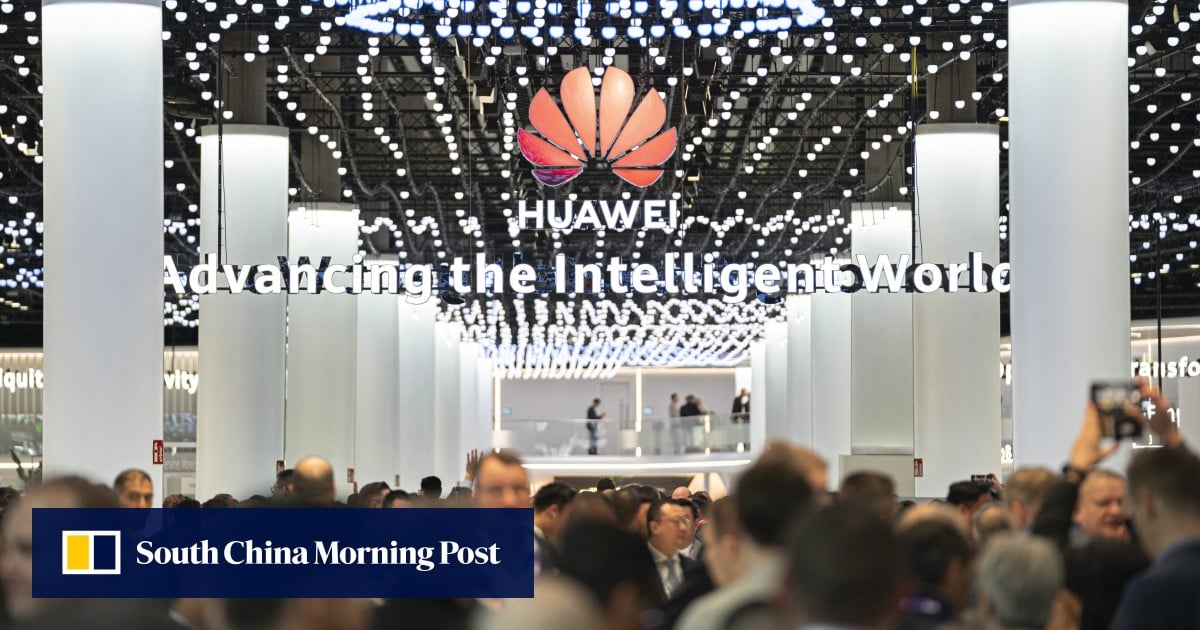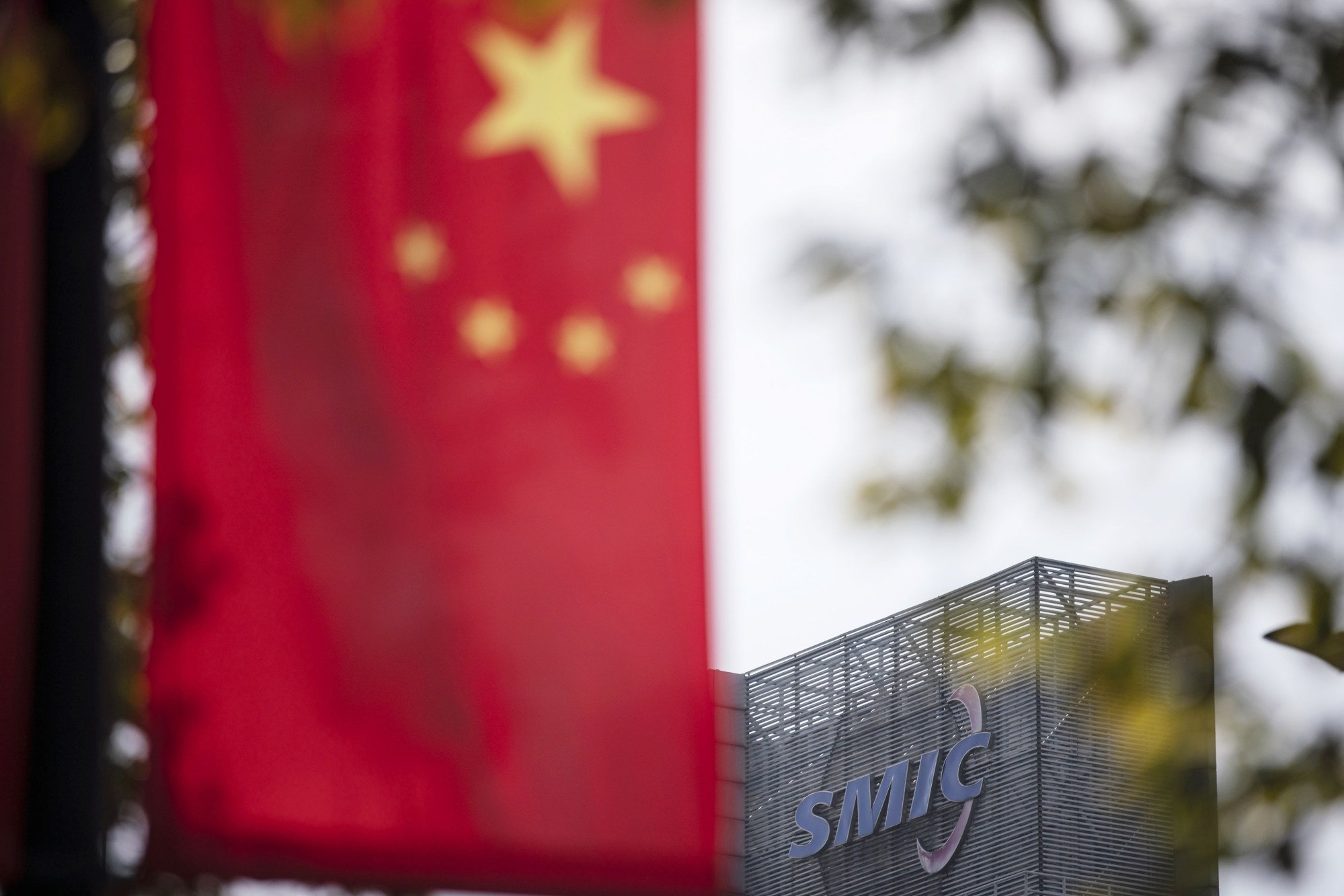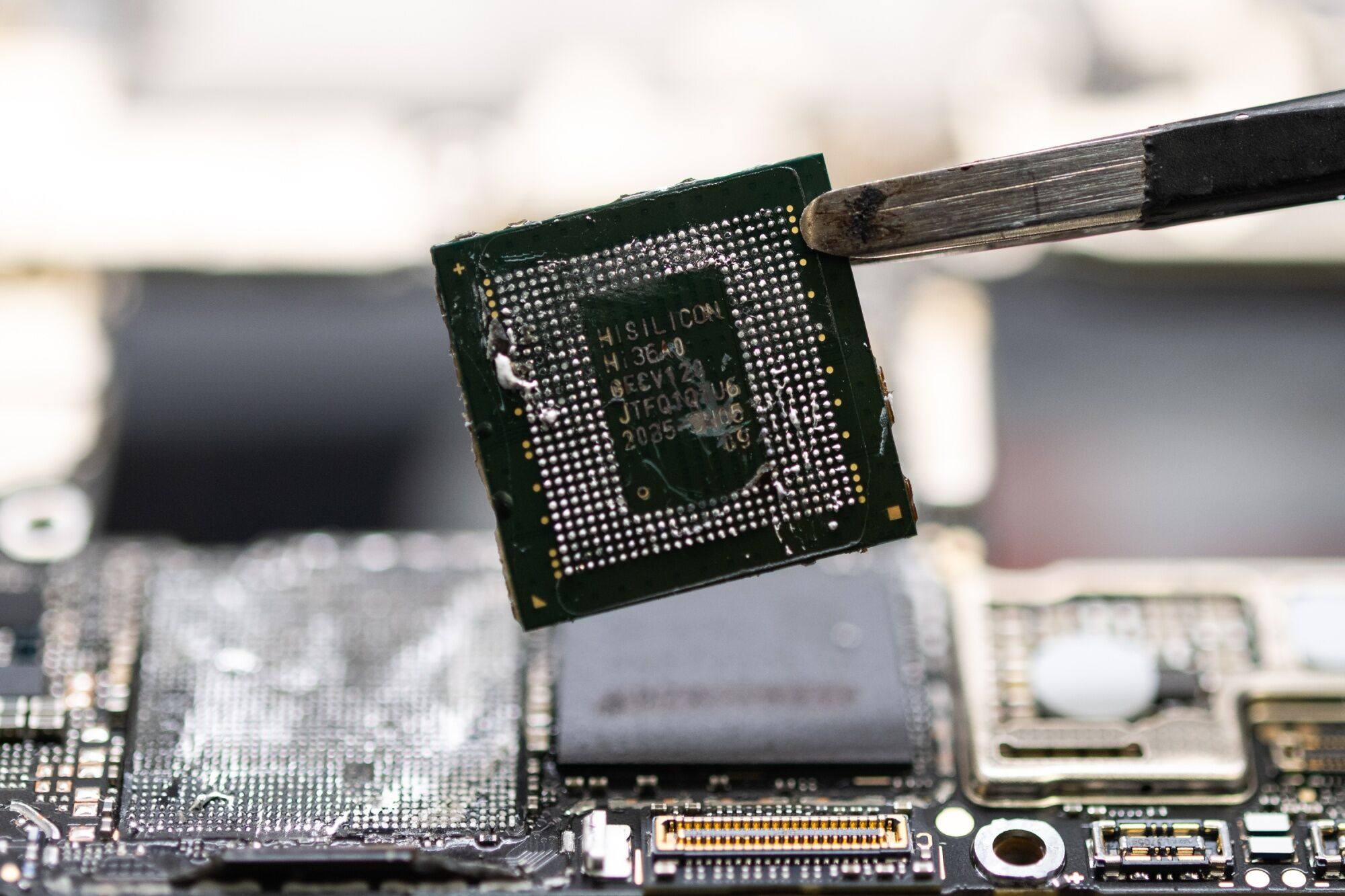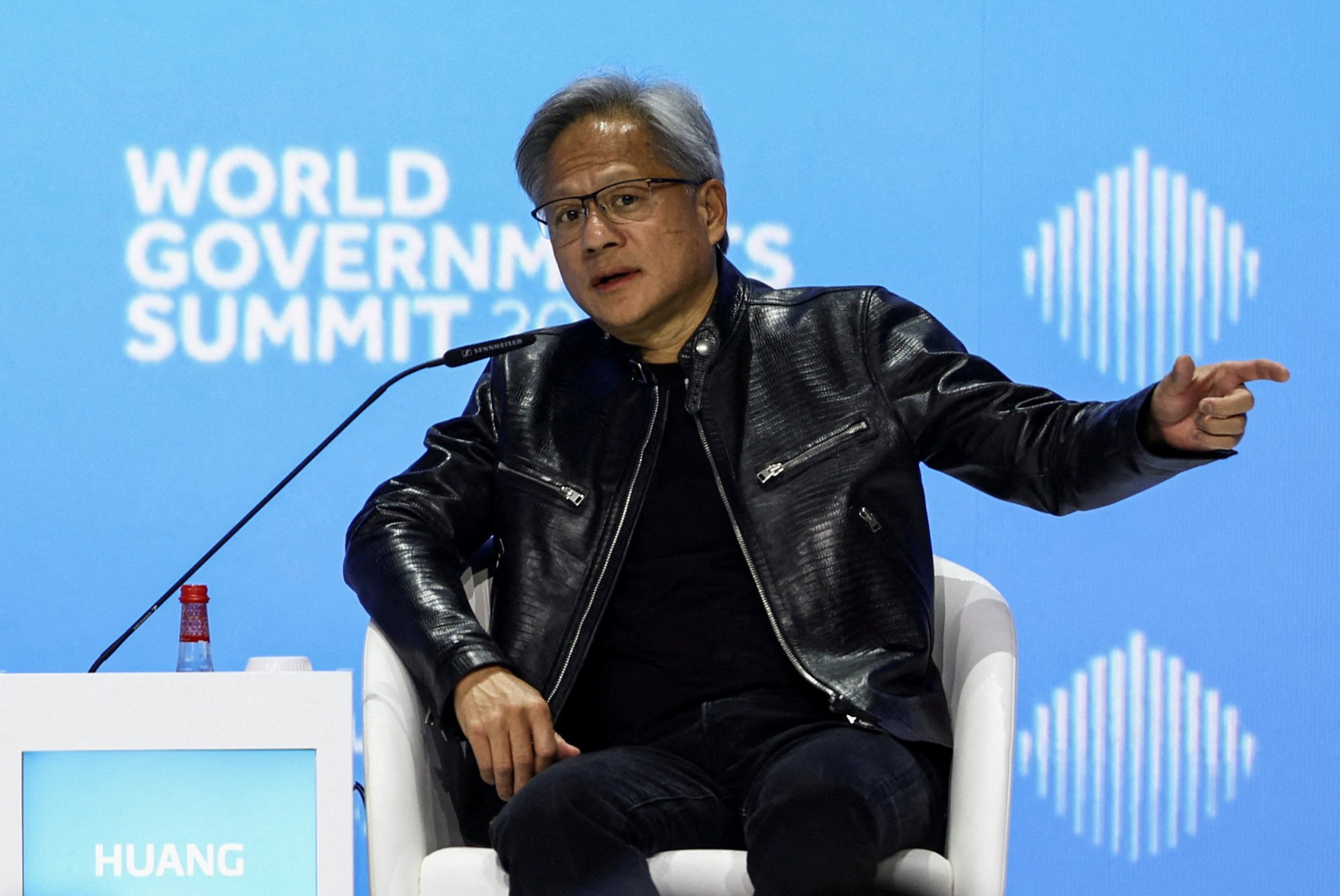
03 Mar Tech war: Huawei’s AI chip capabilities under intense scrutiny after market leader Nvidia taps it as potential rival


Huawei declined to comment on the matter.

“They’re limited by whatever semiconductor processing technology they have, but they’ll still be able to build very large systems by aggregating many of those chips together,” Huang said.
Amid the increased focus on generative AI in the past year and tighter US sanctions, Huawei and SMIC have allocated more capacity to AI chips, according to a Reuters report last month.
One GPU distributor, who declined to be named due to the sensitivity of the matter, said that the Ascend 910B is “available for order, but supply is really tight at the moment”.
Huawei, ZTE showcase AI prowess at MWC Barcelona amid industry transformation
Huawei, ZTE showcase AI prowess at MWC Barcelona amid industry transformation
A server used for AI training and embedded with eight Ascend 910B cards costs around 1.5 million yuan (US$208,395), which is roughly in the same range as A100 server prices quoted in black market channels, according to a separate person familiar with the matter who also declined to be named.
Many analysts and industry professionals are reluctant to comment on the Nvidia and Huawei showdown, although they pointed out that the US chip designer has depth in GPUs and benefits from its software ecosystem CUDA, a computing platform that allows developers to unleash the full potential of semiconductors.
“CUDA is sticky, Nvidia did all of this hard work on its own and is reaping the benefits,” said Brian Colello, technology equity strategist at Morningstar. “Huawei and its software partners will need to build out an ecosystem comparable [to Nvidia’s CUDA] when it comes to tools to build AI models.”
SMIC, Huawei among top recipients of Chinese government funding this year
SMIC, Huawei among top recipients of Chinese government funding this year
Despite lagging CUDA’s 2 million-strong list of registered developers, Huawei has its proprietary Compute Architecture for Neural Networks, a platform that connects Ascend hardware and software, crucial to unlocking AI computing power.
Colello said Huawei might have to make similar [big] investments in mainland China to strengthen its software capabilities. He added that perhaps other companies will work on the software libraries, while Huawei focuses on chip design.
“Huawei’s strength is not in the software stack,” said one Shanghai-based tech investor who requested anonymity. “The US sanctions put limits on chip performance and production yields.”
